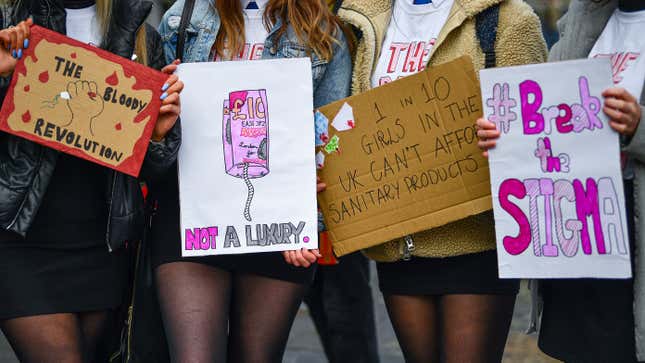Scotland Becomes First Country To Make Menstrual Products Accessible For Free
Latest

On Tuesday, the Scottish Parliament voted unanimously to allow free and universal access to menstrual products such as tampons and pads in public facilities across the country, making Scotland the first country to pass legislation making sanitary products a legal right for its residents.
-

-

-

-

-

-

-

-

-

-

-

-

-

-

-

-

-

-

-

-

-

-

-

-

-

-

-

-

-

-

-

-

-

-

-

-

-

-

-

-








































